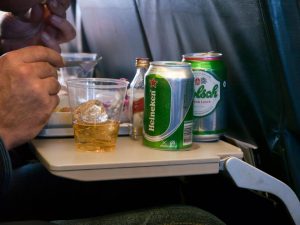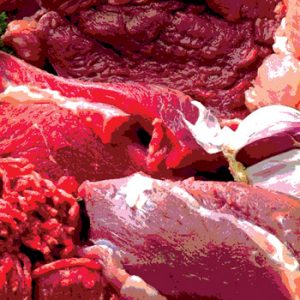A passenger on board a Ryanair flight has shared his story of a nasty booze-filled disturbance involving another customer.
 Speaking to RTE Radio One’s Liveline, Conor Lyden revealed the grim details of how another passenger puked on him and his laptop – all while in mid-air.
Speaking to RTE Radio One’s Liveline, Conor Lyden revealed the grim details of how another passenger puked on him and his laptop – all while in mid-air.
The incident occurred on a Ryanair flight to Malaga from Cork.
A passenger, in his late 20s to early 30s, had become “heavily intoxicated” – and despite a delay before takeoff – his antics only worsened as the trip went on.
Conor went on to explain his disappointment towards the Ryanair staff in both the build and aftermath of the incident.
He said: “I was heading away on a family holiday with my parents and my brother.
“I noticed that one passenger, in particular, was heavily intoxicated.
The flight took off despite the man causing a delay with his behaviour
“This passenger tried to bring two glasses of vodka and mixer on to the plane and he was told he wasn’t allowed to bring them on by the staff at the gate but he was allowed to just knock them back there and then.
“This particular passenger was very disruptive, shouting and intimidating other passengers.
“A lot of other passengers complained. I was sitting a couple of seats in front of him at this point.
“I think a lot of people thought he was going to be kicked off the plane, he was quite drunk.”
He came stumbling up the aisle behind me and vomited all over my head and down my front and on to my open laptop
Despite receiving a warning from staff, the passenger continued to consume alcohol they had purchased prior to boarding before covering Conor in vomit.
“Ryanair staff had some baby wipes and hand sanitizer, that was all they could give me. I didn’t have a change of clothes because they take your bag off you.
“So I had to sit there for two hours like that.
“As the largest airline in Europe, Ryanair’s number one priority is the safety of our customers, crew and aircraft and has a zero tolerance policy towards alcohol and disruptive behaviour.
“Ryanair does not allow ‘intoxicated’ passengers onboard our aircraft. We operate strict guidelines for the carriage of customers who are disruptive or appear to be under the influence of alcohol.
“It’s completely unfair that airports can profit from the unlimited sale of alcohol to passengers and leave the airlines to deal with the safety consequences.
Uh-huh.
 Verotoxigenic E. coli (VTec) is a powerful strain of E.coli bacterium that lives in the gut of healthy cattle and sheep and can cause serious illness in the elderly and in children aged under five.
Verotoxigenic E. coli (VTec) is a powerful strain of E.coli bacterium that lives in the gut of healthy cattle and sheep and can cause serious illness in the elderly and in children aged under five. 








